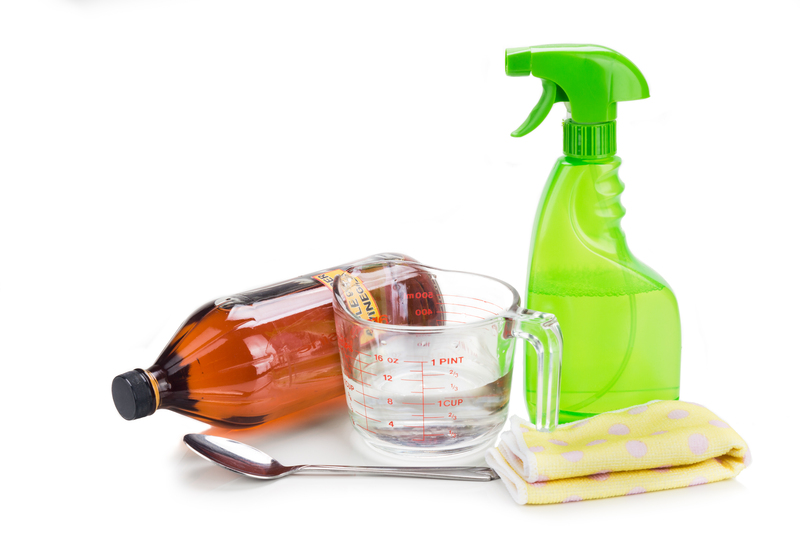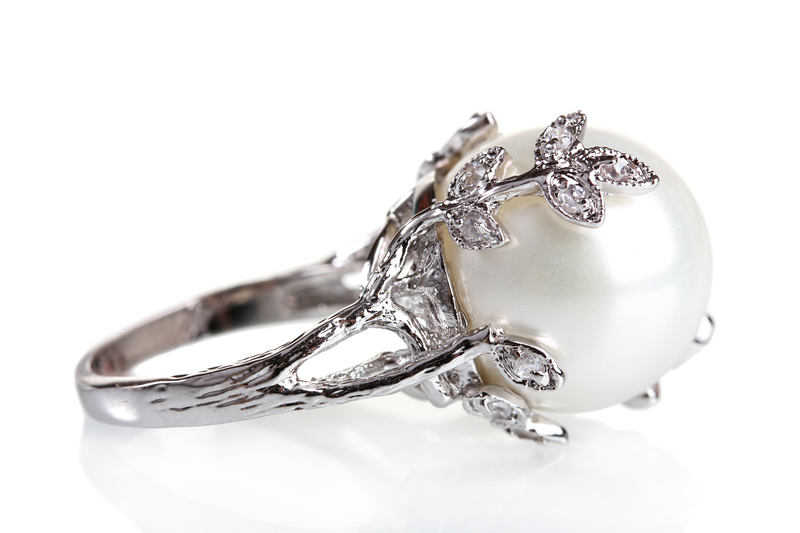Master the Art of Pet Odor Removal
Posted on 05/09/2025
Master the Art of Pet Odor Removal: The Ultimate Guide for Pet Owners
Are you struggling to keep your home smelling fresh and welcoming due to persistent pet odors? As much as we adore our furry companions, their presence can sometimes introduce unpleasant smells into our houses. Mastering pet odor removal is an essential skill for every responsible pet owner. This comprehensive guide will walk you through innovative methods, useful tips, and effective solutions to eliminate pet odors and keep your living space fresh and clean.

Understanding the Sources of Pet Odors
Before diving into pet odor elimination techniques, it's crucial to identify the root causes. *Pet smells* can originate from various sources, including:
- Pee and feces accidents on carpets, furniture, or floors
- Pet dander and dead skin cells accumulating over time
- Unwashed pet bedding, toys, and collars
- Wet dog scent after baths or rainy walks
- Anal gland secretions and bodily fluids
- Improper litter box maintenance (for cats and small animals)
Understanding these odor sources is the first step in mastering the art of neutralizing pet odor for good.
Immediate Actions: Quick Fixes for Pet Smells
1. Address Accidents Instantly
Whenever you notice a pet accident, act promptly:
- Blot (don't rub) the affected area with paper towels to soak up as much liquid as possible.
- Apply an enzymatic cleaner specifically designed for pet stains to break down odor-causing molecules.
- If you don't have a pet-specific cleaner, a homemade solution of water and vinegar can be a temporary fix.
2. Ventilate the Area
Open windows and doors to allow fresh air in. Good airflow helps dissipate lingering *pet smells* faster and refresh the environment naturally.
Essential Tools for Pet Odor Management
To consistently eliminate pet odors, equip yourself with the right cleaning supplies:
- Enzyme-based cleaners: Destroy urine and organic matter at the molecular level.
- HEPA vacuum cleaner: Removes pet hair and dander from carpets, furniture, and upholstery.
- Baking soda: Natural deodorizer that absorbs stubborn odors.
- Activated charcoal bags: Neutralizes persistent smells in rooms or closets.
- Steam cleaner: Deep cleans fabrics and carpets.
- Rubber gloves and scrub brushes: Essential for manual spot cleaning.
Deep Cleaning Strategies for Pet Odor Removal
1. Carpets and Rugs
Carpets are notorious for trapping pet smells. Here's a proven method for pet odor removal from carpets:
- Vacuum thoroughly to remove hair and debris.
- Sprinkle baking soda generously and let it sit overnight to absorb odors.
- Vacuum up the baking soda the next day.
- Treat any remaining stains with an enzyme cleaner and blot dry.
- Consider using a steam cleaner for deep cleaning every few months.
2. Upholstery and Furniture
To banish pet odor from sofas, chairs, and other soft furnishings:
- Vacuum all surfaces, including under the cushions.
- Check manufacturer instructions for safe cleaning agents.
- Spot clean with a solution of water, vinegar, and a mild detergent.
- Let items air dry in direct sunlight, if possible, as UV rays help neutralize odors.
3. Hard Floors and Tiles
Hard surfaces can also harbor pet smells, especially in corners and grout lines. For optimal results:
- Mop with a mixture of warm water and a pet-safe disinfectant.
- Pay extra attention to baseboards and behind furniture.
- Dry immediately to prevent mold and mildew buildup.
4. Litter Boxes and Pet Cages
Litter boxes and cages are frequent culprits in carrying strong *pet odors*. Keep them under control by:
- Scooping daily and replacing litter or bedding regularly.
- Deep cleaning containers with mild soap and water weekly.
- Sprinkling a thin layer of baking soda underneath clean litter as an extra odor absorber.
Effective Homemade Solutions for Pet Odor Elimination
1. Baking Soda as a Natural Deodorizer
Baking soda is a time-tested solution for neutralizing pet smells throughout the home. Use it on carpets, furniture, or even in shoes to soak up persistent scents.
2. Vinegar-Based Cleaning Sprays
Mix equal parts white vinegar and water in a spray bottle. This potent combination disinfects and neutralizes odors. You can add a few drops of pet-safe essential oils for a pleasant finishing scent.
3. Activated Charcoal for Passive Odor Control
Place small bags of activated charcoal in problematic areas such as shoe cabinets, closets, or behind litter boxes. Charcoal naturally absorbs a wide range of organic odors, including persistent pet urine smells.
Preventing Pet Odors at the Source
While cleaning up after pet smells is important, prevention is even more effective. *Tackle odors before they start* with these simple, proactive routines:
- Groom pets regularly: Bathe dogs and brush all animals according to their breed's needs to minimize dander and dirt buildup.
- Launder pet bedding and toys weekly: Machine wash all washable items in hot water and soap to kill bacteria and odor-causing agents.
- Maintain a consistent litter box cleaning schedule: Replace litter and wash boxes frequently to prevent the accumulation of strong cat odors.
- House-train your pets: Reinforce positive bathroom behavior to limit indoor accidents.
- Ensure proper pet nutrition: Sometimes, strong odors stem from dietary issues or poor health.
Special Considerations for Persistent Pet Odors
What If Odors Won't Go Away?
If, after diligent cleaning, pet odors persist, it may be a sign of deeper issues:
- Soiled padding under carpets: Urine can seep below the surface, requiring professional extraction.
- Mold or mildew: Long-term moisture can result in secondary odors that need targeted treatment.
- HVAC systems: Pet dander can collect in vents and ducts, spreading odors throughout the house.
In these cases, consider hiring a professional cleaning service, especially for severe or longstanding odor problems.
Choosing the Right Cleaning Products
Always choose pet-safe cleaning products. Avoid products containing ammonia or harsh chemicals, as many can be toxic to pets and may even make odors worse by mimicking the smell of urine.
How to Keep Your Home Smelling Fresh with Pets
Daily Habits for Odor-Free Living
Daily maintenance is the secret to an inviting, fresh-scented home with pets:
- Sweep or vacuum every day, especially high-traffic areas.
- Open windows or use air purifiers to ensure good airflow.
- Use washable covers on sofas and pet beds to make cleaning easier.
- Keep pet feeding areas tidy and promptly clean up any food spills.
- Address any "accidents" the moment they occur to prevent soaking and staining.
Investing in Technology
Modern technology offers innovative solutions for ongoing pet odor removal:
- Robotic vacuums: Program them to clean up pet hair and debris daily.
- Air purifiers with HEPA filters: Target both airborne dander and odors.
- UV sanitation wands: Kill odor-causing bacteria on hard surfaces and fabrics.
Common Myths About Pet Odor Removal
- Bleach is best for pet odors: False. Bleach masks smells but doesn't break down urine crystals, and its scent may attract pets to urinate again.
- Air fresheners solve the problem: They only cover up odors without addressing the source. Always remove the source of pet smells first.
- Lemon juice alone neutralizes all odors: Citrus can help scent air, but it's not enough for deep-seated stains and smells.
- All enzyme cleaners are identical: Quality varies - read labels and reviews to ensure efficacy and pet safety.
When Should You Call a Professional?
Even the most meticulous pet owners may need professional help for severe cases of pet odor removal. Call in experts if:
- Repeated cleaning fails to resolve heavy odors.
- Your carpets or upholstery are damaged by multiple or old pet accidents.
- You suspect odors have penetrated subflooring, padding, gutters, or vents.
- You're preparing to sell your home and need the freshest environment possible.
Professional services use industrial-grade equipment and solutions that tackle pet odors at the molecular level. Your home can be restored to its best form with their help!

Pet Odor Removal: Frequently Asked Questions
Does vinegar really remove pet odors?
Yes, vinegar neutralizes ammonia in pet urine and eliminates many types of odors, especially when combined with baking soda or enzymatic cleaners.
How do I remove pet smells from hardwood floors?
Wipe spills immediately, mop with dilute white vinegar, and ensure the area is thoroughly dried. For persistent odors, try specialized wood-safe enzyme cleaners.
What if my pet keeps marking the same spot?
Use an enzyme cleaner and block off the area temporarily. Positive reinforcement training and addressing behavioral triggers can prevent repeat accidents.
Are essential oils safe to use for pet odor removal?
Many essential oils can be toxic to pets. Only use those known to be safe in pet environments (such as lavender or chamomile), and always dilute heavily and ensure good ventilation.
Conclusion: Turn Your Home into a Fresh, Pet-Friendly Haven
Mastering the art of pet odor removal is achievable with the right approach, consistent habits, and a bit of know-how! By understanding the sources of pet smells, using proven cleaning techniques, and investing in effective products, you'll keep your home welcoming and fresh--for you, your guests, and your beloved pets. Remember, a clean home is a happy home!
Bookmark this guide as your go-to resource for all things related to pet odor removal, and start enjoying a cleaner, healthier environment today!




